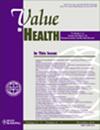支持孤儿药计划的三大支柱:个人价值、社会价值和匿名利他主义。
IF 6
2区 医学
Q1 ECONOMICS
引用次数: 0
摘要
目的确定并描述支持孤儿药项目的潜在社会和个人来源:广义风险调整成本效益法(GRACE)显示,急性病和残疾的严重程度会增加个人对健康收益的支付意愿(WTP)。我们开发了一种社会福利函数(SWF),将个人自身的价值与政治或道德决定的权重相结合。我们在 SWF 中引入了横向公平的概念,即处于类似情况的个人应得到类似的待遇。最后,我们在个人效用函数中引入了匿名利他主义--在不知道他人身份的情况下帮助他人的愿望:结果:结合疾病严重性与稀有性之间的经验联系,GRACE 显示了对健康收益的更高 WTP,从而引导理性个体支持孤儿药项目,即我们的第一支持支柱。将横向公平添加到 SWF 中会进一步增加社会对孤儿药项目的支持。匿名利他主义最强烈地关注那些处于最恶劣环境中的人,从而导致对严重失调患者的利他主义支持。由于创新者的经济动机促使他们关注更大的市场,因此匿名利他主义者会特别支持孤儿药项目。搭便车问题的存在将其转化为对公共项目的支持:我们确定了支持孤儿药项目的三大支柱:(1)个人对治疗罕见疾病的渴望,这些疾病通常病情严重、危及生命;(2)我们的社会福利基金中的横向公平概念;(3)匿名利他主义,即对处于困境中的人的渴望,即使他们并不为人所知。本文章由计算机程序翻译,如有差异,请以英文原文为准。
Three Pillars of Support for Orphan Drug Programs: Individual Valuations, Societal Valuations, and Anonymous Altruism
Objectives
To identify and describe potential societal and individual sources of support for orphan drug programs.
Methods
The Generalized Risk-Adjusted Cost-Effectiveness method shows that acute illness and disability severity increase individuals’ willingness to pay for health gains. We develop a social welfare function (SWF) that incorporates individuals’ own values, combined with politically or ethically determined weights. We introduce the concept of horizontal equity—that individuals in similar situations should be treated similarly—into the SWF. Finally, we introduce anonymous altruism into individuals’ utility functions—the desire to help others, without knowing their identity.
Results
Combined with the empirical link between disease severity and rarity, the Generalized Risk-Adjusted Cost-Effectiveness method demonstrates heightened willingness to pay for health gains for people with rare diseases, leading rational individuals to support orphan drug programs, our first pillar of support. Adding horizontal equity to the SWF further increases societal support for orphan drug programs. Anonymous altruism, focusing most strongly on those in the most-dire circumstances, leads to altruistic support for those with severe disorders. Because innovators’ economic incentives lead them to focus on larger markets, anonymous altruistic individuals will increasingly prefer public investments into rare diseases over time, as private markets systematically produce gains for common diseases.
Conclusions
We identified 3 supporting pillars for orphan drug programs: (1) individuals’ propensity to prefer treatments for severe diseases; (2) the preference for horizontal equity in our social welfare; (3) anonymous altruism, the desire to help strangers, coupled with market incentives that underserve strangers with rare diseases.
求助全文
通过发布文献求助,成功后即可免费获取论文全文。
去求助
来源期刊

Value in Health
医学-卫生保健
CiteScore
6.90
自引率
6.70%
发文量
3064
审稿时长
3-8 weeks
期刊介绍:
Value in Health contains original research articles for pharmacoeconomics, health economics, and outcomes research (clinical, economic, and patient-reported outcomes/preference-based research), as well as conceptual and health policy articles that provide valuable information for health care decision-makers as well as the research community. As the official journal of ISPOR, Value in Health provides a forum for researchers, as well as health care decision-makers to translate outcomes research into health care decisions.
 求助内容:
求助内容: 应助结果提醒方式:
应助结果提醒方式:


